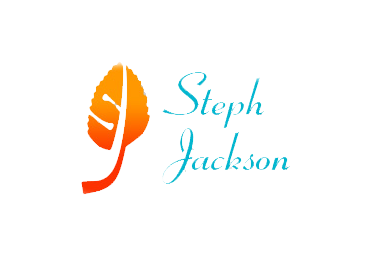Know The Difference Between Good and Bad Advice

Just in case you thought otherwise, NOTHING on this site or app can be construed as health advice. I don’t know you. I can’t give you advice and besides, I abhor telling people what to do. You are the only person who can tell yourself what to do after doing your due diligence which includes consulting your medical practitioner. If your medical practitioner doesn’t believe food is connected to health get a new one!
This article is more about family and friends who just have to tell you what they think whenever you have something going on.
Everybody eats food and everybody has a body. It’s pretty easy to see how everyone has their own opinions about food, health and how the body works. Some opinions are far more informed than others. Most people have no idea how uninformed they actually are.
We all have experience with food and therefore everyone’s an expert. As soon as friends and family hear that you are interested in health or perhaps changing the way you eat to better support your body it starts: The opinions start flying in like paper airplanes in a grade three classroom. In time it can get pretty overwhelming and although each of the ideas presented are unique they all start to blend together into a wash of unsolicited dietary advice.

I’m sure you have developed your own coping mechanisms for this type of advice. I like to really listen to the person and find something we can agree on before moving on. But before even that how do you know when you are actually getting good advice from a friend or family member and how do you pick it out from the seemingly endless stream of nonsense coming from media, institutions, professionals, friends and loved ones. Here are five questions to ask yourself to guide your intuition as to whether your advisor may be onto something.
- Their advice is something that can be read in more than one reputable place. Maybe there has been more than one reliable study on what this person is recommending or maybe their opinion has been featured in a wide range of well documented literature or across many cultures or traditional practices. Don’t trust something just because it is in a medical journal. Read it for yourself and determine the strengths and weaknesses of the studies done. Cosmo, while fun to read on the plane, may not be the best place to get information on certain topics although if Cosmo says the same thing that is also featured in a published study in the Gastroenterology and if it’s also something that your grandmother told you once and there are other traditional cultures that have used this practice it may be worth a look. This is not to say that if something has not been traditionally practiced or scientifically documented it is not true. There are more things that we don’t know yet, haven’t tried, haven’t done and that haven’t been studied than we could possibly imagine. It is always trial and error and risk/benefit analysis. Fortunately most plants in and of themselves are not that risky. Removing whole classes of foods from a diet can be if not done with knowledge.
- Their advice is not overly simplistic or black and white. Yes, some things are black and white (elephant steps on toe, toe hurts) but food and health are nuanced and because experiences and exposures can vary so much it is great to receive recommendations that are not quite so dogmatic. Thou shalt eat cabbage may or may not be the best diet ever for every person. If the friend or family member giving suggestions seems to have an understanding of the nuances of food and how it works in the body they are likely to be dishing out better words of wisdom.
- Their advice does not limit or increase any essential nutrients to the point at which it could be damaging. Yes
 the vegan or a grain free diet may seem a bit extreme to some but these types of diets do not necessarily limit or eliminate key nutrients from our foods. Some diets that are really really low in vegetables or really really high in protein or fats may represent excesses and extremes that cannot be compensated for and may not be good advice for everyone to follow. Certainly not long term. No doubt the friend or family member giving advice about the diet has anecdotes to share on success with an extreme food plan but this does not mean that it will work for everyone. When using the word extreme think.. is the idea of the diet extreme or are the nutritional elements of the diet extreme?
the vegan or a grain free diet may seem a bit extreme to some but these types of diets do not necessarily limit or eliminate key nutrients from our foods. Some diets that are really really low in vegetables or really really high in protein or fats may represent excesses and extremes that cannot be compensated for and may not be good advice for everyone to follow. Certainly not long term. No doubt the friend or family member giving advice about the diet has anecdotes to share on success with an extreme food plan but this does not mean that it will work for everyone. When using the word extreme think.. is the idea of the diet extreme or are the nutritional elements of the diet extreme? - Their advice focuses on something reasonable rather than obscure. While your exhaustion may be a result of some exotic or terrifying sounding disease it could also be dehydration, lack of sleep or a B vitamin deficiency. If their advice has you thinking about the apocalypse it may be time to consider advice from someone else. For any sign or symptom look to the things you are exposed to every day and the most common causes in everyday life. When you hear hoofbeats think horses, not zebras. Unless of course you have zebras nearby. Then think zebras. The problem with googling symptoms is all that will come up are diagnosable diseases, not dehydration, sleep deprivation, stress, sensitivities, mold exposure or blood sugar swings. Rule out the obvious and close-to-home first.
- Their advice is not designed to make them feel better about their own choices. If you are eating kale salads all day long and you are taking advice from someone who is eating
 pizza and ice cream AND the advice is to eat more pizza and ice cream… this may be a little suspect. It’s not always going to be this obvious but friends and family can be driven subconsciously to keep us the way we “were” or make us more like them so that they can feel just a little better, just a little safer. This can be particularly pronounced where one person is going through great healing and change and others start to feel left behind or invalidated. While they may have some great advice they may also be driven by their fears and trying to change you.
pizza and ice cream AND the advice is to eat more pizza and ice cream… this may be a little suspect. It’s not always going to be this obvious but friends and family can be driven subconsciously to keep us the way we “were” or make us more like them so that they can feel just a little better, just a little safer. This can be particularly pronounced where one person is going through great healing and change and others start to feel left behind or invalidated. While they may have some great advice they may also be driven by their fears and trying to change you.
There is good advice out there and there are wonderful people who love you with your best intentions in mind. You cannot follow every piece of advice you receive from friends, family, strangers and professionals that are helping you. Before you get overwhelmed consider whether their advice is something that can be read in more than one place, is not too black and white, not limiting essential nutrients, not focusing on anything totally obscure and not designed just to make the advisor feel better. Keeping this in mind you will be able to take on what serves you, follow the advice that will lead you down the right path and move toward your goals with the help of well meaning friends and family as a team.





